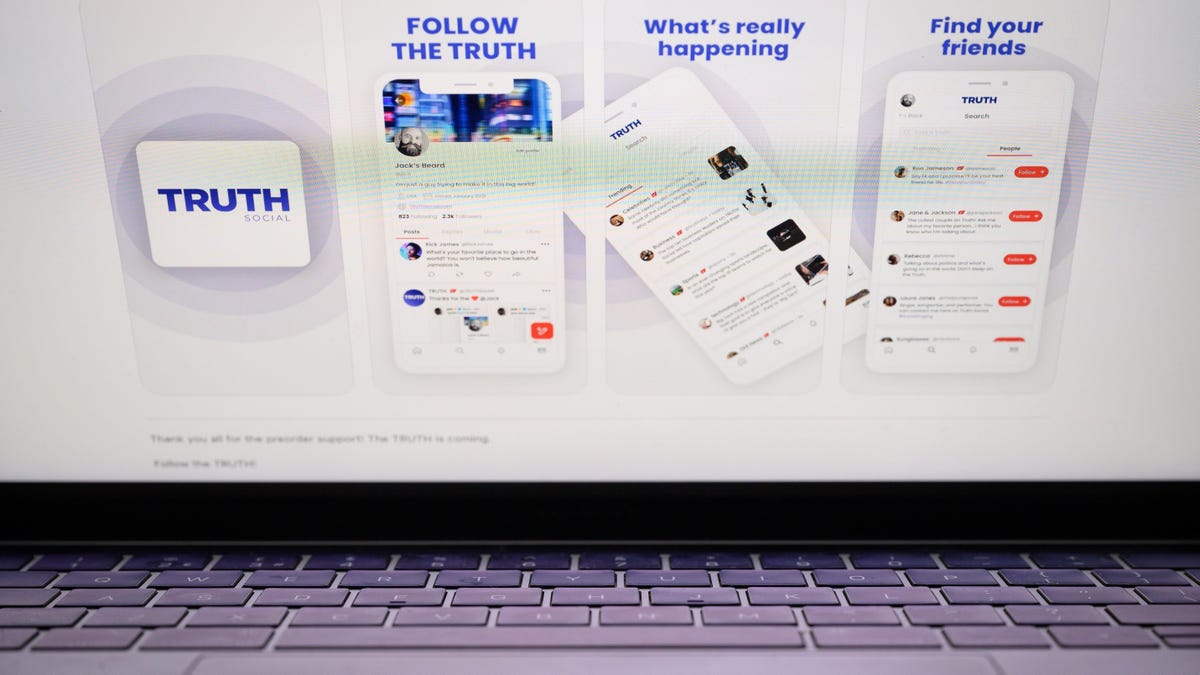
Donald Trump's vision for a hellhole social media site free of liberal censorship, the yet-to-be-launched Truth Social, will rely on the same auto-moderation tools as its competitors. According to a Monday report by Fox Business, Trump Technology & Media Group has signed a deal with a company called Hive, which helps tech firms automatically detect content that is illegal or otherwise violates a company's terms of service. The ultimate goal is to help Truth Social become a family-friendly site, which apparently means barring things that social conservatives don't like. We want to be family-friendly, we want this to be a very safe place, and we are focused on making sure any illegal content is not on the site. These are not things that are left or right. When you think about the bigger companies, what they put in place around misinformation, what they deem that to be, that's their prerogative. Hive's system is not doing things like trying to censor any political talk, according to Guo.
It became one of the cornerstones of Trump's philosophy that tech firms discriminate against patriotic people. He advocated tearing up Section 230 of the Communications Decency Act, the law that gives websites extensive legal shields against liability for most kinds of user-generated content. He proposed a plan to turn the FCC into a sort of online speech police that would fine social media sites that censor conservatives.
The use of auto-moderation bots shows the contradiction in the Republican stance on the issue. It was found that a lack of moderation could lead to getting kicked off app stores, as well as facing a wave of hen, which is why Trump and crew seem to be trying to stray further into the learning curve. Truth Social wouldn't function on a basic level if it weren't using this kind of technology. Any tech platform that runs on user-generated content at scale can and likely will be used to upload illegal or highly undesirable content, ranging from child sex abuse material and material support for terrorism. This stuff is usually deleted for obvious business and legal reasons.
If a site is large, it's not a good use of human time to sort through all of this, so companies often use automated tools to handle simpler tasks. There are a lot of problems with this type of system, including that tech companies like Google frequently yank it out as an excuse to justify digital landlordism, or to set up unfair regimes on issues like copyright. The use of bots is less a choice than a legal obligation for any site aiming to operate on a scale even approaching Facebook.
As TechDirt's Mike Masnick has pointed out, prior sites marketing themselves as free-speech havens for conservatives have found themselves speed running to the kind of tactics they decry from the likes of Facebook and Twitter.
They just end up with a completely different set of rules, which means users can spread whatever they want, but no one should see a boob. Beyond its basic terms of service, Truth Social's rules aren't public yet, and TMTG didn't respond to Gizmodo's request for comment. Truth Social's stated intent of making the site the most family-friendly seems to be much stricter on policing the kind of content that offends social conservatives, like Reddit, which allows porn.
That is assuming that Truth Social's users are interested in following the rules and that the site is interested in enforcing them. Truth Social will be open for all ideas, all political debate from the left to the right, and dedicated to the free flow of debate and ideas all over the globe.
The BS argument that social media sites might not be protected from lawsuits if they remove political content is popular among conservatives. The logic says that when they remove some viewpoints and not others, they cease to be a platform and instead become a newspaper op-ed page. It applies broadly and doesn't make any distinctions. The argument always seemed to be a pretext for Trump and other GOP politicians to label sites they don't like as Section 230 protected platforms.
Truth Social and its auto-moderating bots are definitely a platform, not a publisher, but now that he is the CEO of a tech venture, Nunes is changing his tune a bit.
It is the law of the land. In the past, I would express my frustration at what point a website or tech company becomes a publisher. We're not going to be in that kind of business, so we're not worried about any changes to Section 230 in the future.
Truth Social, a site that doesn't involve editorial content, is choosing which internet celebrities to court for its upcoming launch. The department of Truth Social is reaching out to certain people to see if they would like to use their preferred usernames.